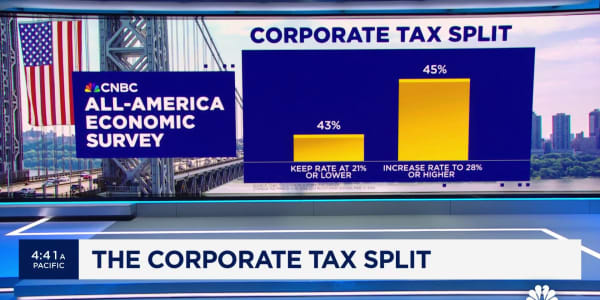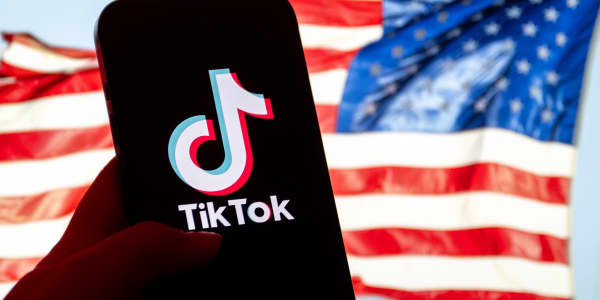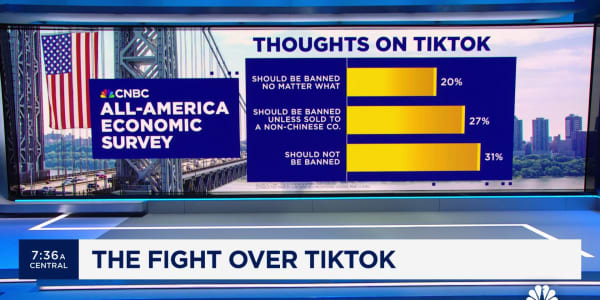From government-mandated paid maternity leave to tuition-free college, the CNBC All-America Economic Survey reveals a surprising American appetite for some very progressive policies.
In a survey of 800 Americans nationwide, with a margin of error of plus or minus 3.5 percentage points, the CNBC survey finds majority support for five of six proposals that have been percolating in the national debate mostly, but not entirely, from the Democratic side. On some of the issues, the survey even found majority Republican support.
"These are bread and butter kitchen table issues that families are dealing with if you're making less than $75,000 and I think that's contributing to the fairly high Republican support numbers,'' said Micah Roberts, partner at Public Opinion Strategies, the Republican pollster for the survey.
"I feel these types of proposals will be more closely debated and perhaps more closely supported within the public than maybe we would have anticipated," said Jay Campbell, partner at Hart Research Associates and the Democratic pollster for the survey. "There's desire out there for these."
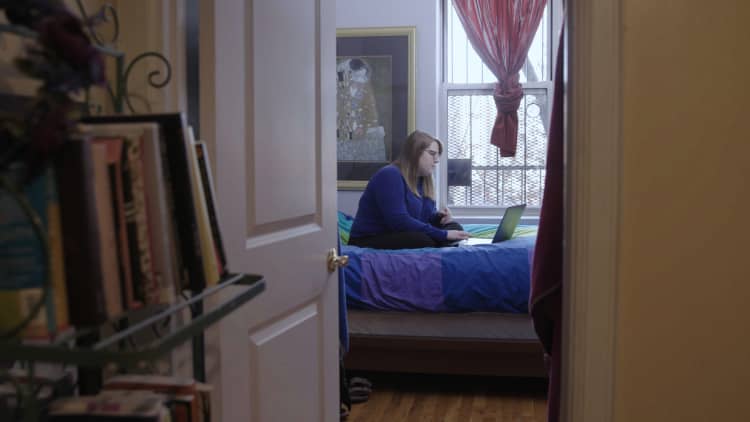
Despite these findings, other questions in the survey show Americans still prefer the free market to the government when it comes to solving a host of problems.
Bipartisan support
But on the issue of maternity leave, 84 percent of the public approve of a federal requirement that employers provide paid maternity leave, paced by 94 percent support from Democrats, 83 percent from Independents and 73 percent from Republicans. Increased federal funding for child care is supported by 75 percent of the public, including overwhelming support from Democrats and Independents but also majority support from Republicans.
Perhaps explaining Republican support, President Donald Trump's 2020 budget proposal includes federal funding for both paid maternity leave and for child care. On other issues asked about in the survey, Republican support drops off considerably (though not entirely) even while there's majority support from the American public.
A healthy 60 percent majority support increasing the federal minimum wage to $15 per hour from $7.25. However, Republican support is only at 31 percent while Democrats and Independents sport strong majorities in favor.
More from the survey:
Similarly, 57 percent of the public support tuition-free state and public colleges paid for with federal dollars, including 80 percent of Democrats and 61 percent of Independents. A small but not insignificant 28 percent of Republicans also support the plan championed by Democratic Presidential candidate Sen. Bernie Sanders.
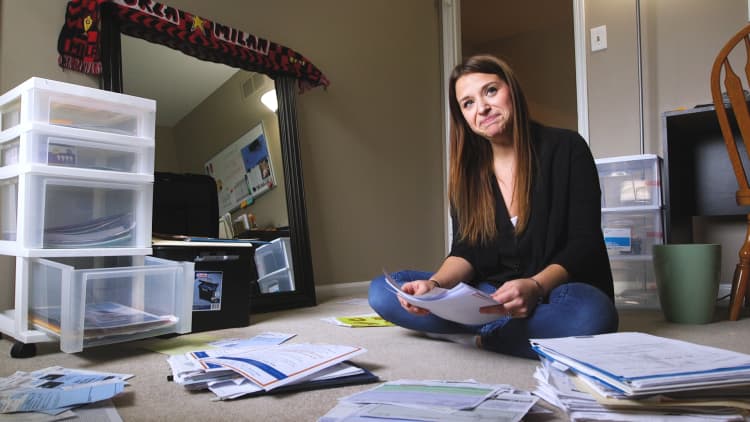
The hot-button issue of "Medicare for All'' also gets majority support at 54 percent, including from 81 percent of Democrats but just 19 percent of Republicans.
Campbell said he was not expecting the widespread support for tuition-free college and Medicare for all. "The fact that so many independents do come down in support of these two policies was surprising to me," he said.
A universal basic income, that is, where all Americans would be provided with some form of income from the Federal government whether they work or not, is seen as a progressive proposal that goes too far. Just 28 percent of the public backs the idea, including 45 percent of Democrats and just 6 percent of Republicans.
Importantly, the survey finds that four of the proposals --- on maternity leave, child care, raising the minimum wage and tuition free college --- have majority support in Republican congressional districts. But the pollsters are skeptical this means any of these proposal will be enacted.
"This (poll) says everything about how voters feel but not necessarily anything about what's possible," Roberts, the Republican pollster, said. "When you start attaching candidates and parties to these proposals, you start driving down those Republican numbers in significant ways."
Paying for it
When it comes to paying for these proposals, Americans are not shy about supporting higher taxes on the wealthy but they balk when it comes to taxing themselves. Sixty-one percent back the proposal from Democratic presidential candidate Sen. Elizabeth Warren, D-Mass., to tax wealth in excess of $50 million. And 58 percent back an idea, loosely tied to comments from Democratic Congresswoman Alexandria Ocasio-Cortez, to boost taxes on the wealthy to 70 percent on earnings above $10 million. Only 46 percent of the public supports repealing the 2017 tax cuts and just 30 percent want to eliminate all deductions, such as for home mortgages and charitable giving.
However, in what looked to be somewhat contradictory findings, Americans also lean towards more free market and less government when it comes to issues like reducing income inequality and increasing worker pay. In fact, 37 percent of the public say that increasing worker pay should be handled by the free market, compared to 11 percent who say it should be entirely the responsibility of government. Thirty-two percent say it should be only somewhat the responsibility of the government and 14 percent say mostly the government.
On the issue of reducing income inequality, the preference for the free market beats a preference for the government by 30 percent to 14 percent. Only on providing health care is there more of a split, with 28 percent preferring the free market and 24 percent preferring the government.



